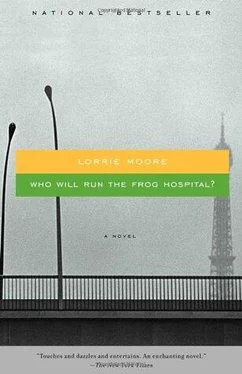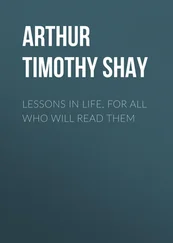We had to be on the lookout for Herb, the park manager. (What did all these little children think when Cinderella and Little Bo Peep turned out to have nicotine stains and so much cigarette smoke on their breath? my husband, a medical researcher, asked me once, and I shrugged. Different things, I mumbled. Different times. Everybody smoked. Their parents smoked.)
“You haven’t seen my sheep? Why, I’ve lost them and don’t know where to find them!”
Randi’s voice trailed off, and Sils and I hummed songs we knew, ones we’d learned in Girls’ Choir at school — medieval Christmas carols, a section of the Brahms German Requiem, the duet from Lakmé , the theme from The Thomas Crown Affair (Miss Field would be so proud!) — or songs we’d heard on the radio that week, ones we learned from songbooks, lots of Jimmy Webb. Sils liked “Didn’t We,” Dionne Warwick’s version, and at home was learning the chords on her guitar. “ ‘This time we almost made our poem rhyme.’ ” She made the chord changes in the air, like weaving, with her left arm stuck out like a neck. “Yeah, yeah, yeah,” I said. “Et cetera, et cetera.” But I sang, too, warming to its prettiness.
I did the alto harmony. That was always my part. Rummaging about beneath the melody, trying to come up with something low and nice, something supportive — decorative but deep.
Afterward I’d light a cigarette and say nothing.
“I had a girl this morning who kept petting the glitter on my dress, staring up at me all agog, you know, like this.” Sils slumped her shoulders, dropped her jaw.
“Did you swat her?” I asked.
“I beat the shit out of her,” she said.
I laughed. So did Sils, and when the low bodice of her dress moved a little, I tried not to look toward her breasts, which as they sometimes rose into light or fell back into shadow fascinated me. I was flat, my breasts two wiener-hued puffs, and I had to avoid all dresses with darts, all nylon shirts and plunging bathing suits. Though I pretended otherwise, I hadn’t even menstruated yet, though I was already fifteen. The words “developed” and “undeveloped” filled me with dread and loathing. “When you develop,” my mother might begin a long, embarrassing prophecy, or the school nurse would come to talk to us in Science, and I would freeze in my chair, not moving a muscle, trying to disappear. It seemed a mortifying truth that no one but I could admit to that I was never going to “develop.” But I tried to manage my disappointment: I hadn’t wanted to be a freak, mostly I’d just wanted to grow breasts so I could look at them. I’d wanted to study them, powder and perfume them. Now I had to accept facts: I’d been bypassed by Mother Nature, the garlanded and white-robed figure whom I sometimes saw on margarine commercials, summoning thunderstorms. I’d been overlooked by her.
And so I told long self-deprecating breast jokes about myself, relying on such analogies as fried eggs, bug bites, bee stings, animals or tin cans run over by a car, pancakes, pencil erasers, doilies, and tacks; breasts were still a curiosity to me. It had been only a few years before that Sils and I would examine at great length any centerfold we could get our hands on, or W. T. Grant underwear ads, or even Land O Lakes butter, cutting out the Indian maiden from the package and bending the knees so that they appeared like breasts through a slot we made in her chest. We’d laugh in a fascinated, obscene way. We were obsessed with breasts. We’d stuff washcloths, teacups, golf balls, tennis balls, cotton balls in our shirts. Once we made her mother, who was long divorced and worked late hours as a receptionist at the Landmark Motel, show us hers. She was a sweet and guilt-ridden mother, exhausted from her older sons (their loud band practices in the basement; their overnight girlfriends; their strange, impermanent, and semiannual treks across the border to Canada to avoid the draft, though their numbers were high; the spaghetti they hung on the porch as a “wind chime”; the snapshots they taped to the inside of the refrigerator, pictures of what the dog had done to the trash). She was fearful that in trying to make ends meet she hadn’t shown enough attention to her little daughter, so when we began to chant “Show us your breasts, show us your breasts!” strangely enough, she did. She lifted her sweater, unhooked her bra, and shook them loose, looking out at us in a confused way, as we stared at them — veiny, and dark, and amazing.
But now it seemed it was only me. I was the only one still obsessed.
The late spring sun had freckled the upper part of Sils’s chest, and her silky hair, rinsed in cider and beer, was shiny as Christmas foil. “I kept asking her, So what’s your name?” said Sils. “Where do you go to school? — you little twerp — Do you like your teacher? Things no real Cinderella would ever say, but there was a spell on with this girl.”
“That couldn’t be disspelled.” This was the sort of boring cleverness I was prone to, a skinny, undeveloped girl good in school.
“She kept asking me about the prince. She’s not two . You’d think she’d get it. Ceci n’est pas une pipe .” Sils had memorized all the slides from History of Art. “There is no prince.”
I smoked Sobranies down to the poison-gold filter. I exhaled through my nose like a dragon. “ Now you tell me,” I said. “You’re not really Cinderella?” We were never very witty as girls, but we thought we were. Our idea of a funny joke was to refer to our chins as “The Happy Acre Pimple Farm.” In a town where everyone said things like “Jeesum Crow” and “sheeesh,” we said “fuck”—but in a daring, private way. “What the fuck, babe.” Sils liked to say that, with a smirky, smoke-frayed laugh. I would say it, too. Once, in eighth grade, her forehead broke out and she tried to shave the pimples off with a razor. It wasn’t funny at the time — her forehead bled for a week — but when we wanted later to laugh, we would summon it up: “Remember the time you shaved your forehead? What the fuck , babe,” and we’d fall on the floor. We looked to secret things. We looked to stories and misadventures and mined them for their narcotic ore. We loved to laugh violently, convulsively, no sound actually coming out until suddenly we’d have to gasp in a braying way for breath.
Now she gave me the finger with one hand and then with the other balanced her lit Sobranie against her thumb. But she smiled. She shrugged. She hummed. She said, “Listen,” and then belched out the carbonation from her Fresca. She was my hero, and had been for almost as long as I could remember. In being with her — cigarette break to lunch to cigarette break — I got through the dull days.
We’d started working at Storyland in May, on the weekends, through the Memorial Day rush, until school let out in early June. Then we worked six days a week. Up until then we had met during the school week in the cemetery to smoke. Every day we would have what we called a “cemetery lunch.” I would clamber up over the hill, past the blue meadow of veronica and flax, past the broken stick-arbor and the Seckel pear, down the gravel path, into the planked swamp and on up to the gravestones, where Sils would be waiting, having arrived from the other end. She lived on a small oaky street that dead-ended into the cemetery (next to which she lived). “Is this street symbolic or what?” Sils would say to anyone who visited. Especially the boys. The boys adored her. She was what my husband once archly referred to as “oh, probably a cool girl. Right? Right? One of those little hippettes from Whositsville?” She could read music, knew a little about painting; she had older brothers in a rock band. She was the most sophisticated girl in Horsehearts, not a tough task, but you have to understand what that could do to a girl. What it could do to her life. And although I’ve lost track of her now, such a loss would have seemed inconceivable to me then. Still, I often surmise the themes in her, what she would be living out: the broken and ridiculous songs; the spent green box of Horsehearts; the sad, stuck, undelivering world.
Читать дальше












